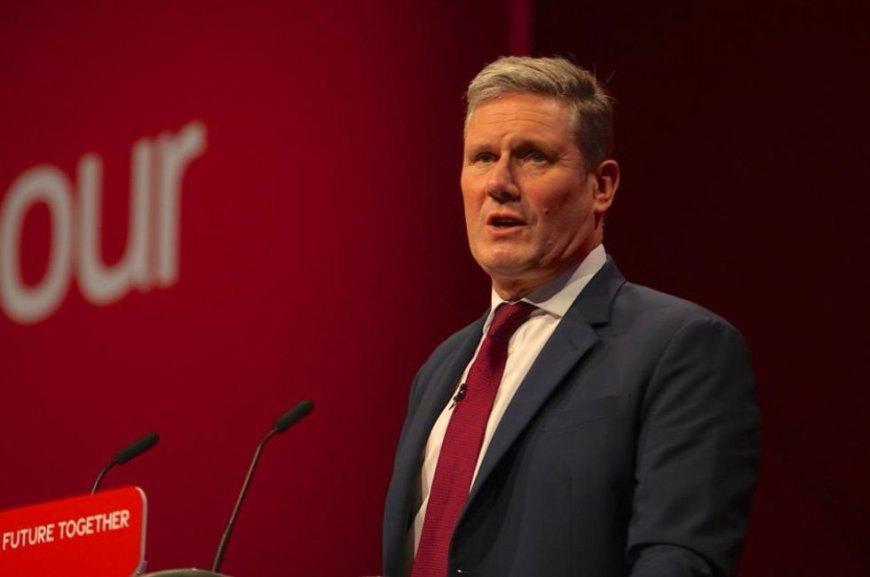The Left Won Big in the UK — But Look Deeper

Sir Keir Starmer led Labour to a whopping win, but his party won fewer votes than it did in the last two elections. Low turnout, Conservative infighting, the rise of Reform UK and the Liberal Democrats’ impressive showing helped Labour. A centrist Labour leadership is likely to govern prudently to prolong its stay in power.
arties of the Right have enjoyed good fortune in Europe lately. However, the British elections this year came as a relief to the Left. Sir Keir Starmer’s Labour Party won 411 seats out of 650 in the House of Commons. In the previous elections in 2019, Conservatives had won 365 seats, breaching Labour’s fabled red wall in the North.
Jeremy Corbyn, the left-wing erstwhile Labour leader, is now no longer in the party. Under Starmer, Labour has moved resolutely to the center even as the Tories (as British Conservatives are called) have imploded into post-Brexit fratricidal bloodletting.
Related Reading
The UK has a parliamentary, first-past-the-post system. The candidate with the most votes becomes the member of parliament (MP) in each constituency. The party leader who commands a majority in the House of Commons becomes prime minister and governs the UK from 10 Downing Street.
The first-past-the-post system can lead to strange results. For instance, the Liberal Democrats won a lower percentage of votes than Nigel Farage’s Reform UK, but the former won far more seats than the latter in these elections. However, the Tories and the Scottish Nationalists were the big losers in 2024 while smaller parties flourished, as the table below demonstrates.

Unusually for any British government, the new Labour government is led by former civil servants rather than professional politicians. Starmer is a centrist who aims to bring back stability to the UK. Before his political career, Starmer was the head of the Crown Prosecution Service. His new Chancellor of the Exchequer, Rachel Reeves, worked in the Bank of England. Both have a reputation for competence and prudence. Like previous prime ministers Rishi Sunak, Liz Truss, Boris Johnson, Teresa May and David Cameron, Starmer and Reeves went to the University of Oxford. However, they did not come from affluent backgrounds or go to elite schools. They beat the odds to rise to the top.
Unlike leaders of the Left in many other parts of the world, Reeves is not promising any increased government spending. Instead, she is advocating supply-side economics to boost growth. In her first major speech, Reeves promised to make economic growth the number-one priority for her government through increased private investment, labor participation and productivity. Both Starmer and Reeves are fiscally prudent, which should lead the British economy to stabilize after a rocky eight years following the 2016 Brexit referendum.
Fund managers and business leaders in New York and London say that the risk premium for UK assets will go down because of the Labour government’s reputation for responsibility. They believe that Starmer and Reeves will steer a closer relationship with Europe, reduce frictions in UK–EU trade and give a fillip to house-building. In contrast to most other democracies, this party of the Left has won a thumbs-up from markets and business leaders.
Conservative meltdown facilitated Labour victory, now what?
As this author predicted in 2016, Brexit turned out to be “a damn close-run thing,” and what followed was madness. Prime ministers came and went with alarming frequency; Truss enjoyed less than the shelf life of a head of lettuce. Post-Brexit Britain could not make up its mind whether to become Singapore-on-Thames or a revived manufacturing power with rejuvenated northern cities. Immigration continued to be a problem. Shipping migrants to Rwanda did not excite the public. Johnson’s parties during the COVID-19 pandemic turned public chafing against draconian government restrictions into open anger. Sunak had the charisma of a dead mouse and demonstrated a gift for fatal political gaffes such as leaving D-Day celebrations early for a meaningless television interview. In a nutshell, the Tories screwed up so badly that a Labour victory was obvious long before the elections.








